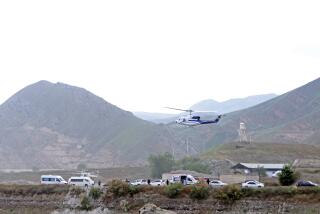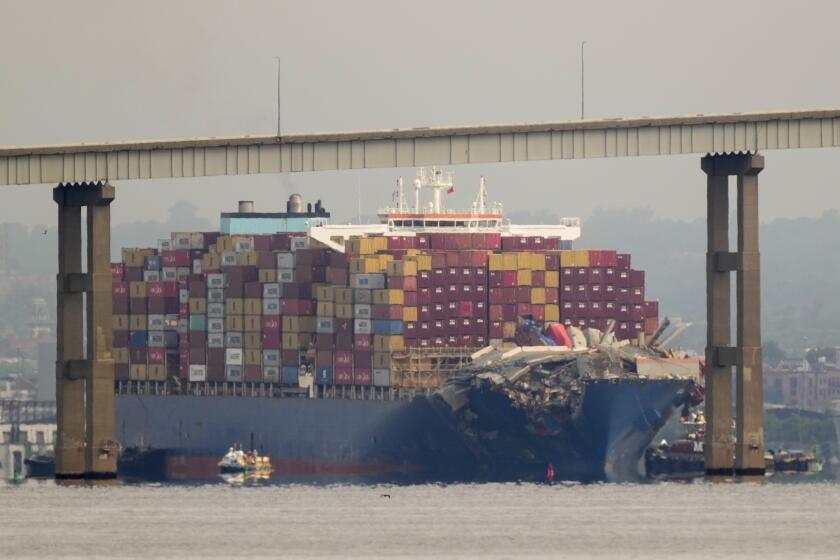African Leaders Pinning Hopes on New Union
It is being billed as Africa’s best attempt to save the world’s poorest continent from the blight of conflict and underdevelopment, but the launch of the new African Union today comes amid mixed reviews.
African leaders are placing big hopes on the bloc of 53 countries, saying that by this joining of forces, the continent will have more political, economic and military clout and will eventually be taken more seriously.
“The forward march toward democracy and good governance is unstoppable and irreversible,” South African Deputy President Jacob Zuma told foreign ministers and diplomats gathered last week in the port city of Durban, where all 53 heads of state were expected to convene for today’s launch.
Though supporters have hailed the African Union’s tough mandate to promote democracy and respect for human rights, some political observers have warned that poverty, corruption, lawlessness and a multitude of wars racking Africa could undermine the union’s success.
Given the typically slow process of getting anything done in Africa, it could take years for the African Union, or AU, to make an impact, critics say. And they warn that the pro-democracy institution will eventually face resistance from member countries that remain intent on defying democratic principles.
In essence, they fear, the AU will simply be old wine in new bottles.
The AU will formally replace the almost 40-year-old Ethiopia-based Organization of African Unity, which nurtured African liberation from colonial rule but saw its effectiveness decline amid an onslaught of financial and administrative woes.
The AU will consist of four branches: an assembly composed of heads of state, an executive council of foreign ministers, a committee of ambassadors and a secretariat. At a later stage, a pan-African parliament, a court of justice and a central bank are to be launched.
“The AU is more ambitious, in the positive sense, than the OAU,” said Eddie Maloka, director of the Africa Institute, a Pretoria, South Africa-based think tank. “It wants to address the weaknesses of the OAU. It has the potential to address pertinent problems of the continent.”
Unlike the OAU, the AU’s Peace and Security Council will have the right to intervene in the internal affairs of member states to stop human rights abuses, war crimes and genocide.
The OAU was criticized for failing to intercede in the 1994 ethnic slaughter in Rwanda and for its inability to defuse conflicts in Congo, Sierra Leone, Sudan and Somalia.
In the 1960s and 1970s, observers say, when many African states succumbed to authoritarian rule and military dictatorship, the OAU’s response was simply to turn a blind eye.
“It was for many years a toothless organization,” said Jakkie Cilliers, executive director of the Institute for Security Studies in Pretoria. “Its main focus was freeing Africa from colonialism and apartheid. That was finally achieved in 1994 [with the end of apartheid]. Now the future challenges are the issues of stability and development.”
Confidence in a Pledge
Other observers expressed confidence that the African Union will be different. Madagascar, for example, has been barred from joining the AU after a disputed election there, under the organization’s pledge to deal decisively with illegitimate regimes.
“The issues of peace, security and democracy should be dealt with in a more decisive manner now, because Africans cannot afford to lose any more time,” OAU Assistant Secretary-General Said Djinnit told reporters in Durban last week.
Many are anxiously waiting to see how the AU will deal with Zimbabwean President Robert Mugabe, whom many local and international observers accused of rigging the country’s presidential election in March. The OAU endorsed the poll results.
Zimbabwe “will ultimately be the test case for the African Union,” Cilliers said. “Will they really be prepared to put on the agenda a country that has stolen an election? My feeling is no. They are busy trying to push a whole continent ahead.”
Foreign diplomats have raised concerns that the AU might adopt the OAU’s style of defending state sovereignty and even authoritarian rule because of a rigid adherence to consensus.
In one case that will be closely watched, Daniel Arap Moi, Kenya’s president for nearly a quarter of a century, has not made clear whether he will attempt to prolong his rule.
“The political culture of African governance, characterized by the ‘elite sovereignty’ of ruling parties in the continent’s 53 states, is going to take a long time to change,” Francis Kornegay, program coordinator at the Center for Africa’s International Relations at University of the Witwatersrand, wrote in a recent opinion piece in South Africa’s Business Day newspaper.
Reluctance among some African leaders to hold one another accountable could hamper the AU’s economic rescue plan--the New Partnership for Africa’s Development, or NEPAD--because it requires leaders to do exactly that in order to win foreign investment.
Under that program, countries that failed to comply with the rules of economic integrity and good governance would face punitive measures, such as the denial of transportation and communication links with other member states, said Maloka, the Africa Institute specialist. NEPAD anticipates that, if successful, it will generate $64 billion in investment a year.
“But it’s most likely that countries that are really committed to the NEPAD process will want to see the AU succeed, so they will throw their weight behind the group,” Maloka said.
Some observers caution that lack of readily available cash could slow the African Union’s moves toward economic integration.
The OAU is still owed an estimated $50 million, more than its operating budget, because fewer than one-third of its members have paid their dues. Hopes for a common African currency remain a pipe dream.
‘No Easy Solution’
“There is no easy solution to the problems of Africa,” said Cilliers. “Expecting more than a symbolic change is expecting quite a lot. It’s going to take a long time for the union to be in a position to make a substantive impact on anything.”
The OAU’s main diplomatic achievement in recent years was helping to end a two-year border war between Ethiopia and Eritrea. Many are confident that this is the type of accomplishment the AU will be able to emulate.
“There’s a clear acceptance of African ownership of its own destiny,” Cilliers observed. “Until recently, the game in town was the blame game. We blamed everybody else for our problems. The debates now are about governance, about democracy and taking responsibility.”
More to Read
Start your day right
Sign up for Essential California for news, features and recommendations from the L.A. Times and beyond in your inbox six days a week.
You may occasionally receive promotional content from the Los Angeles Times.







